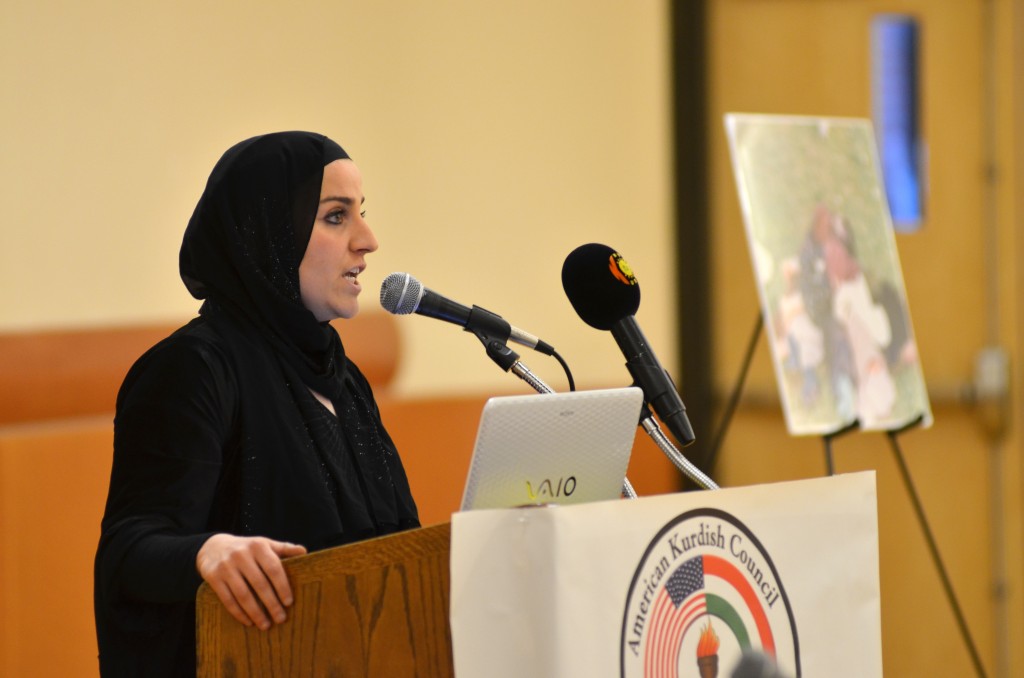
In an effort to expose students to the horrors of chemical warfare and mass killings, Kurdish scholars and experts spoke Thursday about the Anfal Genocide.
The New York chapter of the American Kurdish Council hosted a political discussion panel to commemorate the 26th anniversary of the systematic killing of ethnic Kurds in Iraq. The genocide was a period of organized attacks from 1980 to 1988 on Kurdish communities in the country by the Iraqi military, which was controlled by Saddam Hussein and his cousin, Ali Hassan al-Majid.
“They dumped chemicals from helicopters,” said a survivor in a Kurdish documentary that organizers showed at the talk. “The skin came off our faces, our eyes popped out, but it was a pleasant smell. Like apples and oranges.”
Nearly 180,000 people died, more than 40,000 buildings were destroyed and chemical weapons such as mustard gas were used on citizens, according to Nirgiz Taha.
“It was the only time since the Holocaust that chemical weapons were used on women and children,” said Taha, president of the Binghamton University chapter of the Kurdish Council and a senior majoring in nursing.
The commemoration featured a panel with Kurdish academics and political activists, who spoke about the situation of modern Kurds living in the Middle East.
Speakers explained that millions of Kurds, who share a distinct ethnicity, are divided among Iraq, Turkey and Iran, but do not have a sovereign country.
“These are all colonial-era borders imposed on the land and people,” said Mucahit Bilici, a sociology professor at John Jay College. “They are illegitimate and undemocratic.”
He said that in reality, Kurds often ignored national borders and went back and forth between them.
“These borders have turned life into a series of illegal border crossings,” Bilici said. “These are often associated with immigration but are really crossed out of necessity.”
Panelists said Kurds are gaining political prominence, but Mutlu Çiviroglu, a Kurdish activist in Washington D.C., said the national divide is beginning to pit Kurds against one another.
“Today Kurdish youths in the Middle East are being brainwashed,” Çiviroglu said. “Too many are being sent to fight in Syria against fellow Kurds.”
Panelists also related Kurdish politics back to American interests. Karwan Zebari, U.S. representative of the Kurdistan Regional Government, pointed out that the United States had not officially recognized the Anfal campaign as a genocide.
“Congress officially put forward a proposal to recognize Anfal in November 2013,” Zebari said. “If this is passed, it sets a precedent for genocide. In the future it would set a precedent for intervention, like in Syria.”
Zebari also told the audience that he believed deposing Saddam Hussein, leader of the Iraqi government during the 1980s, was a major humanitarian accomplishment by the U.S.
“The world is much better off that Saddam is gone,” Zebari said. “If you look at a bustling Kurdish community and growing economy, there is much to be proud of.”
After 20 minutes of Q&A with the audience and panel, students said they had learned from the commemoration.
“Prior to the event, I didn’t know much about the genocide,” said Nouha Saeed, a senior majoring in sociology. “It’s important to go to these events so we can spread awareness about what actually happened.”


